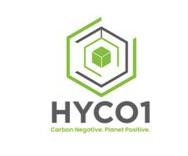HYCO1 is a Houston, Texas (USA) based technology company that has created a disruptive CO2 conversion catalyst and related low-cost CO2 process technology. HYCO1 CUBE™ Technology (Carbon Utilization, Best Efficiency) cost-effectively utilizes carbon dioxide and various methane source feedstocks to create low-cost, low-carbon chemical grade syngas in a single pass. The syngas produced is used to produce low carbon intensity (CI) downstream products.
HYCO1 technology not only lowers the resultant carbon score of the downstream products by 50% to 100% but does so at a competitive cost compared to fossil feedstock derived products and without the requirement of incentives like many other technologies. HYCO1 technology enables green syngas to be used for making products such as Hydrogen, Synthetic Base Oils, Low-Carbon Jet Fuels, Green Methanol, and many others. The new HYCO1 project to be co-located with Kansas Ethanol will utilize all of their 800 tons per day of CO2to produce approximately 60 million gallons per year of low-carbon and zero-carbon products.
Kurt Dieker, Chief Development Officer, and Co-founder of HYCO1, stated “HYCO1 is excited to announce this innovative, next generation project and to collaborate with the Kansas Ethanol team, which runs one of the most advanced ethanol production facilities in the country. I have worked with the Kansas Ethanol team for the last fifteen years, including my tenure as Director of Technology Strategy at ICM, Inc., the world’s largest ethanol technology provider.” Dieker continued “While there are many paths that an ethanol facility can take to improve sustainability and margins, ranging from additional energy efficiencies to protein separation, in my opinion CO2utilization represents the leading value-added step for an ethanol production facility.” Lastly, “As a native Kansan, I am especially proud to be able to build the first of many HYCO1 Carbon Negative, Planet Positive™ facilities starting with this flagship project in Kansas.”
The Lyons HYCO1 project is in the engineering stage with plans to complete the pre-construction engineering in 2024. The facility will produce approximately 4,000 barrels per day of first-of-a-kind synthetic Base Lubricating Oils and Low-Carbon Jet Fuel made from CO2. High-performance products include four centistoke base oil for use in the highest grade synthetic motor oils; and a two centistoke base oil currently being tested by EV manufacturers for its ideal battery and drive-train heat transfer and lubrication properties. The projects’ products are produced with more than 80% reductions in carbon footprints versus traditional fossil-derived products. Approximately half of the weight of these new sustainable products will consist of biogenic CO2 that would have previously been emitted into the atmosphere.
Mike Chisam, CEO of Kansas Ethanol, said of the project, “Although most ethanol producers are considering or pursuing underground carbon sequestration in our industry to decarbonize, we believe that carbon utilization, which supports a circular carbon economy, represents the best use of our CO2, and positions us more competitively in the market. Value added products made from CO2 that displace fossil derived products represents a win for us at Kansas Ethanol, a win for the U.S. Ethanol Sector, and a win for the global environment. We are looking forward to the construction of the HYCO1-based Green Carbon Synthetics Kansas, LLC facility next to ours. The co-location benefits: carbon dioxide utilization, natural gas offset through waste heat steam production, and additional electricity offsets will position our facility as a world leader of low-carbon ethanol resulting in significant shared savings.” Chisam also noted “HYCO1’s carbon utilization technology enables us to sustainably produce all products, even if, or when, government support incentives are no longer available. That is incredibly important to us.”
HYCO1 is currently evaluating additional project sites and partners to mirror the Green Carbon Synthetics Kansas, LLC project, while also collaborating with downstream technology providers to produce other low-carbon products.
About HYCO1

Founded by industrial gas, green chemical, and bio-fuels production experts in 2020, HYCO1 is a new carbon technology company based in Houston, Texas. HYCO1 CUBE™ Technology is developed, tested, and ready to deploy commercially at full-scale. HYCO1 collaborates with industrial companies worldwide to help them become more sustainable. The technology utilizes a revolutionary catalyst and process design to convert industrial scale CO2 emissions into low carbon intensity syngas and green chemicals. HYCO1’s technology enables the use of third-party CO2 as a feedstock to simultaneously lower the operational cost of industrial gas production while creating zero to negative emissions from the process. The innovative technology creates low-cost, low-carbon hydrogen and carbon monoxide, which are used as chemical building blocks to create various downstream products, including Synthetic Base Oils used in lubricants, Low-Carbon Jet Fuel, Green Methanol, Ammonia, Urea, and others.

About Kansas Ethanol
Located in Lyons, KS, Kansas Ethanol is an industry-leading, best-of-class 80 million gallon per year fuel and USP grade ethanol facility. The company began producing ethanol from its ICM-designed and constructed facility in 2008. Since then, Kansas Ethanol has been at the forefront of innovation and sustainability, diversifying its bio-feedstocks, revenue streams, and continuously reducing its carbon footprint.
Source
HYCO1, press release, 2023-07-18.
Supplier
Share
Renewable Carbon News – Daily Newsletter
Subscribe to our daily email newsletter – the world's leading newsletter on renewable materials and chemicals









